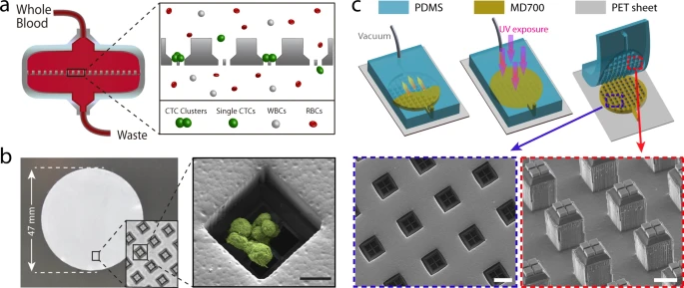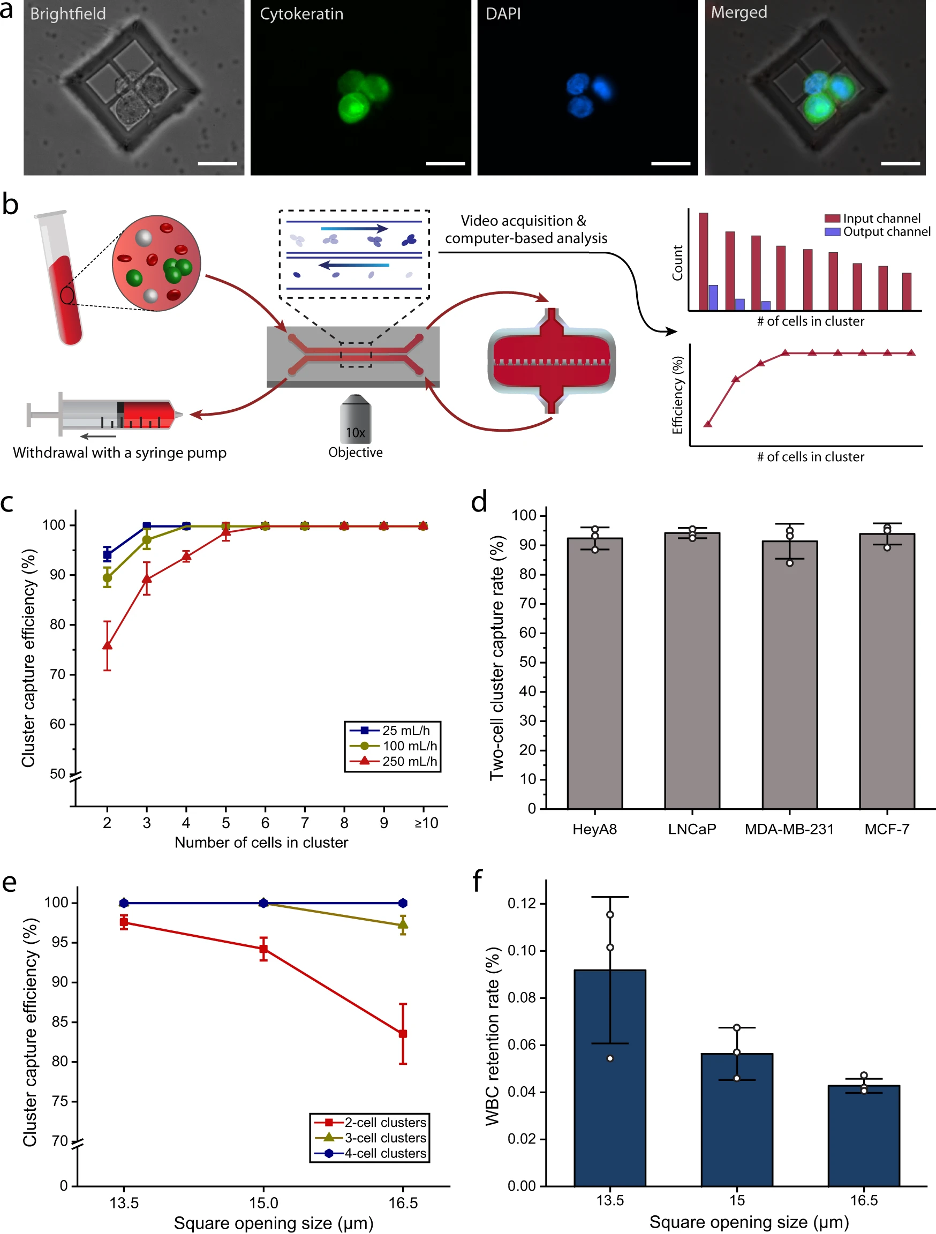Researchers at Georgia Tech have developed Cluster-Wells—an innovative technology for isolating circulating tumor cell (CTC) clusters from the bloodstream for analysis. CTC clusters hold valuable information about the stage and location of cancer in the body. Current analysis methods, however, struggle to capture them because the clusters are extremely rare and highly sensitive to shear force and can easily become dissociated into single cells.
Georgia Tech’s Cluster-Wells is a polymer chip that addresses the challenge of dissociation by exploiting the clusters’ geometry to gently isolate them while still allowing single cells in the blood to pass through. It uses uniformly distributed quadfurcated trapping units to increase the chip’s filtration area while still achieving a blood-processing rate of 25 milliliters per hour. A micromanipulator retrieves the clusters directly from the chip, and the clusters are then ready for downstream analyses. Overall, the Cluster-Wells facilitates a label-free, single-step process that accommodates a high volumetric flow rate and is viable for use in clinical settings.
- High performing: Demonstrates superior abilities to isolate CTCs without clogging the system or dissociating the clusters
- Low cost: Shows high potential for large-scale production because it uses simple equipment and a straightforward process
- Versatile: Isolates CTC clusters of any cancer type and uses hardware that can be modified to accommodate various devices
The primary application of Cluster-Wells is as a diagnostic tool in clinical and lab settings to improve diagnosis and treatment in metastatic cancer patients. Other uses for the technology include:
- Urine cytology
Circulating tumor cell clusters are extremely rare and highly aggressive. Research demonstrates that CTC clusters’ resilience and high metastatic potential—that is, the ability to spread to new sites in the body—are likely associated with lower survival rates of cancer patients. Several technologies have been developed for the capture of single CTCs, but they are not specific or sensitive enough to retrieve CTC clusters. Although there have been recent developments in CTC cluster capture systems, other models are still unable to handle a large enough throughput volume for commercial use. Using a straightforward set-up and without requiring blood pre-processing, Georgia Tech’s Cluster-Wells has already successfully isolated CTC clusters from metastatic prostate and ovarian cancer patients.

Design and microfabrication of the Cluster-Wells

Characterization of the Cluster-Wells using unprocessed whole blood
